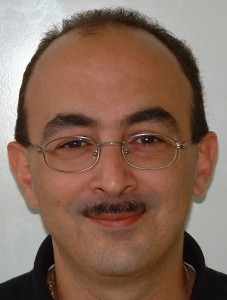-
Plenary III
 Prof. Lotfi Belkoura
Prof. Lotfi Belkoura Universite des Sciences et Technologies de Lille, France
Identifiability and algebraic identification of time delay systems
The first part is devoted to the identifiability of Time Delay Systems described by convolution equations. The notion of sufficiently rich input which enforces identifiability is also addressed and the results are obtained assuming knowledge of solutions on a bounded time interval.
The second part deals with an algebraic approach for parameters and delay identification. The identification procedure mainly consists in differentiation, multiplication with appropriate smooth functions, and integrations. The open loop approach is tackled by means of annihilations of structured entries, while the closed loop case is based on the properties of the convolution products and on the supports in a distributional framework. Based on these non-asymptotic techniques, the identification approach reduces to solving polynomials or eigenvalue problems.
Biorgaphy
Lotfi Belkoura is currently an Associate Professor at the University Lille 1, Sciences and Technology, France. He received the Ph.D. Degree in Automatic Control from the same University in 1993. In 1999, he joined the team SyNeR (Non Linear Systems and Delays) of the Laboratory of Automatic control, Computer Sciences and Signal of Lille (LAGIS, CNRS FRE 3303), and in 2006 the INRIA project-team ALIEN (Algebra for Identification and Numerical Estimation). He has defended his “Habilitation à Diriger des Recherches” in 2006. Since 2008 he has been Director of the SMaRT Research Master degree program of University Lille 1.
His main research interests include the analysis of time delay systems, and more particularly the questions of parameters and delays identifiability and identification. The developed methodology turned out to go beyond the scope of delay systems and his research activities also progressively tended to estimation problems for Hybrid systems. The developed distributional approach offers a large potential of applications and particularly in the domain of detection of abrupt changes. Theses aspects are illustrated in recent papers in which a unified framework is presented for dealing with both delays and parameters estimation of Time lag and Hybrid systems.


